Mare psychology: Seperating fact from folklore
When you think of mares, what comes to mind? Perhaps you’ve heard they’re moody or difficult to handle. Such stereotypes have long colored our perceptions of these remarkable animals, often overshadowing their true nature and capabilities. Yet, anyone who has spent significant time with mares knows there is much more to their behavior than these simplistic labels suggest.
In this exploration of mare behavior, we’ll delve into the unique traits that make mares fascinating and integral members of the equine world. Understanding these aspects is crucial not only for those who manage and train mares but also for anyone looking to form a deeper connection with their horse. By moving beyond the stereotypes, we can appreciate the nuanced behaviors that characterize mares, enhancing our interactions and the care we provide.
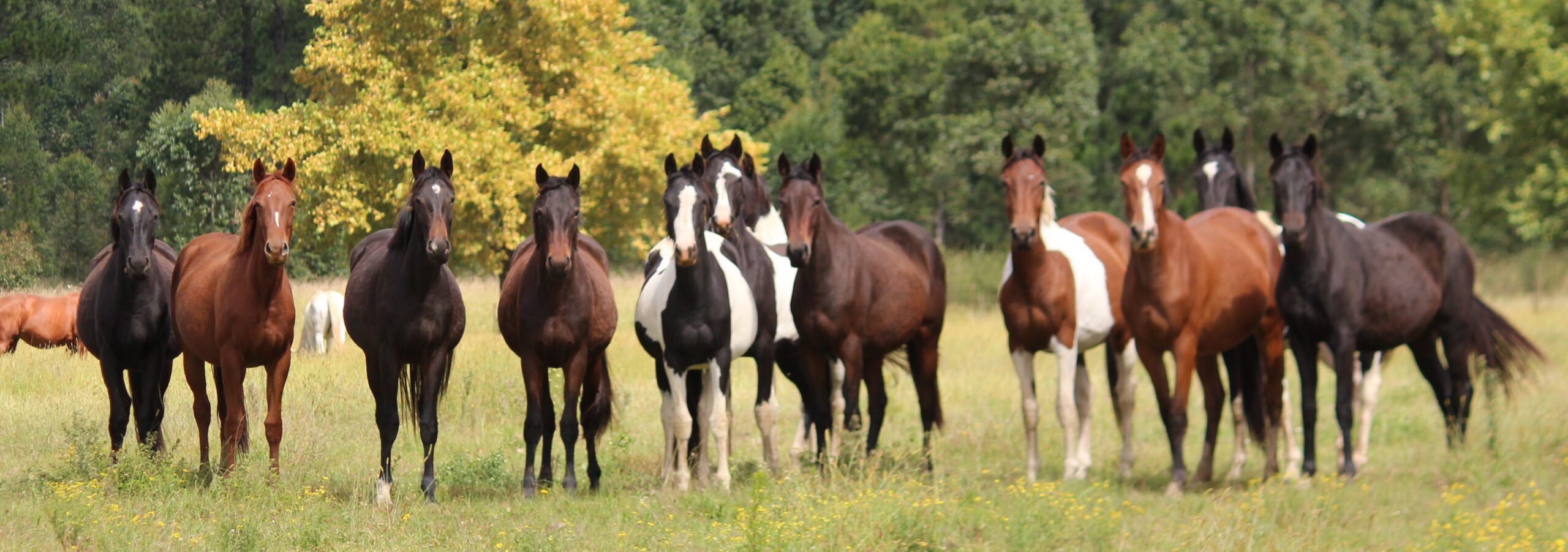
Debunking Common Stereotypes
Mares often carry the burden of labels such as “moody,” “difficult,” and “unpredictable.” These stereotypes, while prevalent, are not only oversimplified but can also hinder the understanding and proper management of these animals. Let’s explore these common misconceptions and present evidence that challenges these views.
1. “Moody”
- The notion that mares are inherently moody often stems from a lack of understanding of their estrous cycle. Unlike their male counterparts, mares experience hormonal changes that can influence their mood and behavior. However, attributing all behavioral changes to hormones oversimplifies the complexity of their behavioral patterns. Research in equine behavior has shown that while hormonal fluctuations can affect behavior, the impact varies widely among individual mares. Proper management and training can mitigate many issues commonly ascribed to moodiness.
2. “Difficult”
- Mares are frequently labeled as difficult, especially in training or handling scenarios. This stereotype can stem from a mismatch between the mare’s handling and her specific needs. Experts in equine behavior note that mares often respond best to consistent, respectful training methods. They can exhibit a high level of focus and cooperation when engaged in a manner that respects their intelligence and individual personality. Studies have shown that mares are no less trainable than geldings; the perceived difficulty often arises from inadequate or inappropriate training approaches.
3. “Unpredictable”
- The label of unpredictability often follows mares due to misunderstandings about their communication cues. Mares, like all horses, give various signals that can be misinterpreted or missed altogether. Educating handlers and riders on equine body language and effective communication can drastically reduce instances of perceived unpredictability. Furthermore, experts argue that once you establish a rapport based on mutual respect and understanding, mares exhibit a remarkable consistency in behavior.
Expert Opinions
- Many equine psychologists and trainers emphasize the importance of looking beyond stereotypes to understand the true nature of mares. They advocate for a balanced approach that considers the mare’s health, environment, and the handler’s expertise. According to Dr. Jane Williams, a professor of equine science, “Understanding the individual mare’s needs, history, and learning style is essential in debunking myths and fostering a positive and productive relationship.”
By challenging these stereotypes with informed insights and tailored approaches, we can foster a more nuanced understanding and better relationships with mares. This not only benefits the mares themselves but also enriches the experiences of those who work with them.
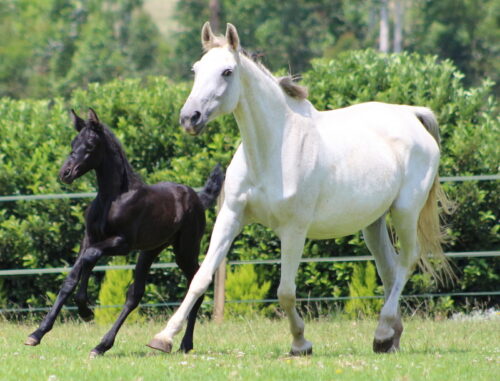
Understanding Mare Psychology
To truly understand mare behavior, it’s essential to consider the psychological aspects that influence how they interact with their environment and handlers. This includes recognizing the impact of hormonal changes, which are often misunderstood or overstated in discussions about mare behavior.
Psychological Foundations
- Mares, like all horses, are influenced by a complex mix of genetic traits, learned behaviors, and environmental conditions. They are highly social animals with a strong instinct for communication and hierarchy within their groups. Mares often exhibit strong leadership qualities and may take on a protective role within a herd. This natural inclination can translate into behaviors that are sometimes misinterpreted as being overly assertive or stubborn in domestic settings.
Impact of Hormonal Changes
- The estrous cycle in mares can significantly impact their behavior, leading to fluctuations that might affect their mood, performance, and interaction with humans and other horses. During their cycle, some mares become more sensitive or irritable, which can influence how they respond to training or handling. However, the degree to which this occurs can vary greatly from one mare to another.
- Misunderstandings and Mismanagement
- It’s a common misconception that all behavioral issues in mares can be attributed to their hormonal cycles. While hormonal changes do play a role, they are just one piece of a larger behavioral puzzle. Effective management requires a holistic approach that considers the mare’s overall health, environment, and training.
- Scientific Insights
- Studies have shown that while some mares exhibit noticeable changes during their cycles, others maintain consistent behavior throughout. Advances in veterinary medicine allow for various management strategies to mitigate the impact of hormonal fluctuations, such as nutritional adjustments, medical treatments, and tailored training schedules.
- Misunderstandings and Mismanagement
Psychological Enrichment
- Understanding and addressing the psychological needs of mares is crucial for their well-being. This includes providing them with a stimulating environment that allows for sufficient social interaction, mental challenges, and physical activity. Techniques such as positive reinforcement training can be particularly effective, as they align with mares’ natural inclinations towards cooperation and social bonding.
By acknowledging the psychological complexity of mares and the multifaceted role of hormonal influences, handlers and caretakers can develop more effective and compassionate approaches to training and management. This deeper understanding helps in creating a more harmonious and productive relationship with mares, ultimately leading to better outcomes for all involved.
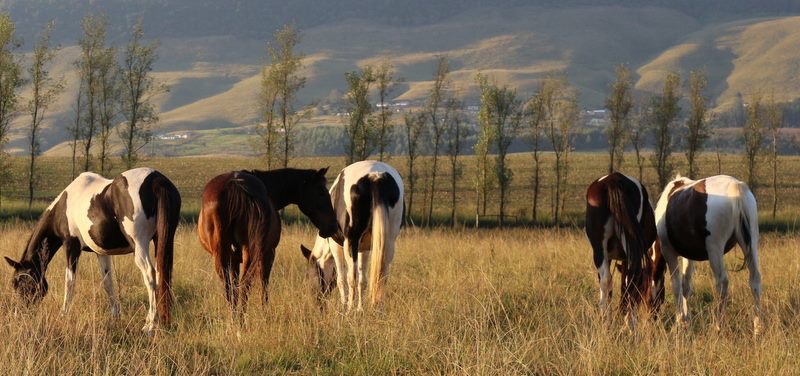
Social Dynamics of Mares
Understanding the social behavior of mares within herds provides valuable insights into their interactions both in a natural setting and when managed in domestic environments. Mares exhibit distinct social dynamics that can differ notably from those of geldings and stallions, affecting everything from herd hierarchy to daily interactions.
Mare Social Behavior in Herds
- Mares typically play a central role in the social structure of equine herds. They often establish and maintain the social order, using a combination of communication signals such as body language, vocalizations, and physical actions. Mares are known for forming strong bonds with other herd members, particularly with their offspring or other females, which can last for years. These bonds enhance the cohesiveness of the group, providing stability and security.
- In terms of hierarchy, mares can be very assertive. A dominant mare usually leads the group, making decisions about movement, grazing areas, and interactions with other herds. This leadership is not merely about dominance but also involves nurturing and protective behaviors, especially towards younger and more vulnerable herd members.
Comparison with Geldings and Stallions
- Geldings: Generally, geldings are considered to have a more even temperament and are less likely to engage in the dominance-related behaviors typical of stallions and some mares. In a herd, geldings often fit into the social structure without the need to assert as much control over group dynamics. They tend to be more laid-back and can act as peacekeepers among more dominant personalities.
- Stallions: The primary role of stallions in the wild is to breed and protect the herd from predators and other threats. Stallions display more aggressive and territorial behaviors than mares or geldings, which is a significant difference in social dynamics. While mares manage the internal structure and harmony of the herd, stallions focus on external challenges. In domestic settings, where breeding and protection are not factors, stallions may still exhibit some of these natural behaviors, which require careful management to integrate them smoothly into group settings.
Similarities Across Genders
- Despite these differences, all horses, regardless of gender, share a need for social interaction and hierarchy. They communicate distress, contentment, and other emotions through similar channels, and they benefit from stable social relationships. Understanding individual temperaments and social needs is crucial in managing any group of horses effectively, whether it includes mares, geldings, or stallions.
By comparing the unique social dynamics of mares with those of geldings and stallions, it becomes evident that each plays a vital role within their respective herds. Recognizing these roles allows for better management practices that align with their natural behaviors, ensuring a harmonious and well-balanced herd environment.
Case Studies: Challenging Stereotypes with Mare Behavior
Understanding and managing mare behavior can be complex, but when their unique characteristics are properly addressed, mares can achieve remarkable success. Here are two case studies that exemplify how nuanced handling and a deeper understanding of mare behavior can lead to improved outcomes, even with mares considered particularly challenging.
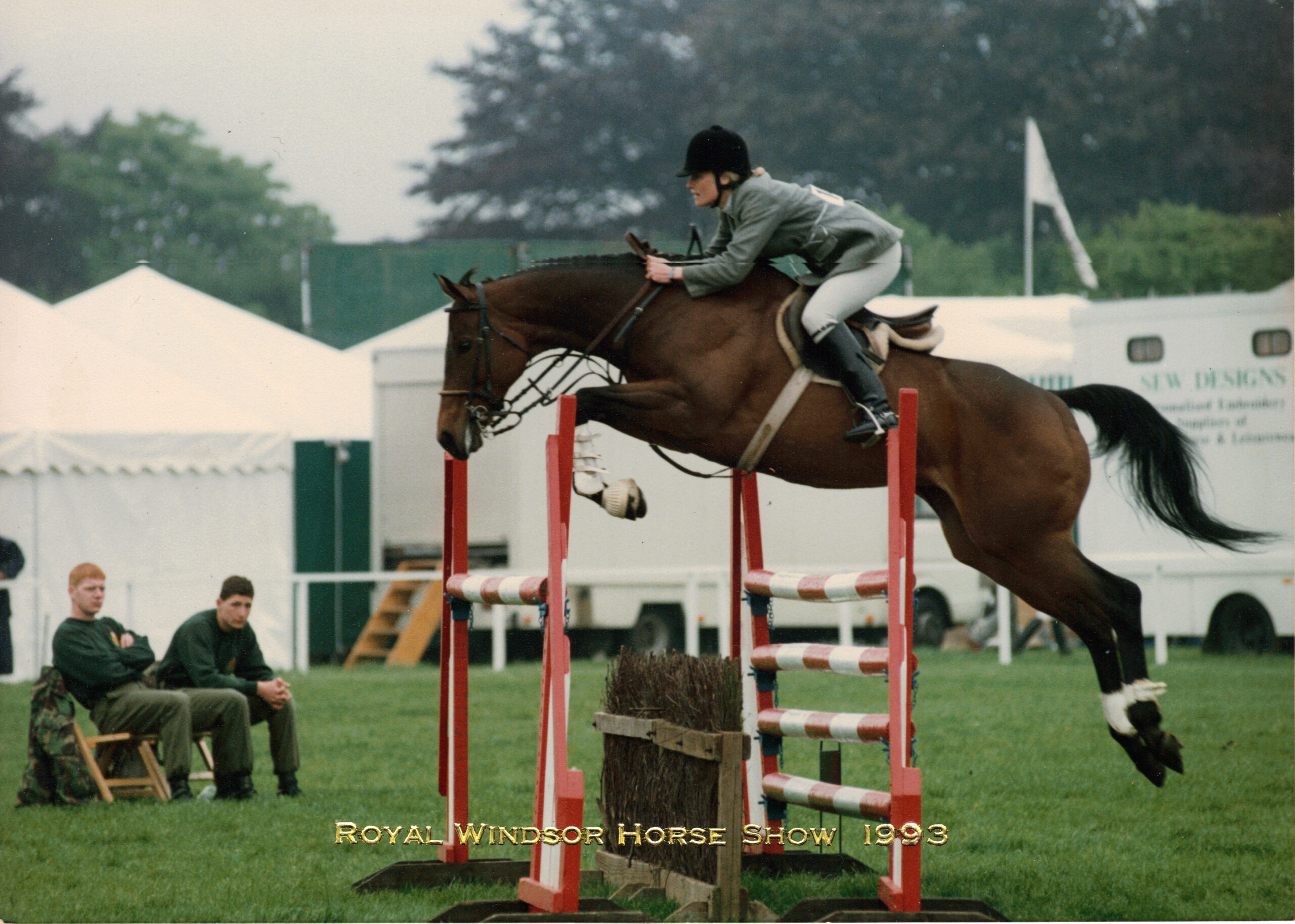
Case Study 1: The High-Performing Jumper
One of the best horses I jumped in England was a thoroughbred mare named She’ll Do (stable name Fern). Having been both a mother and a competitive jumper, Fern exemplified the multifaceted nature of mares. She was an incredibly talented jumper, consistently winning classes and impressing everyone with her careful jump and speed in a jump off.
However, Fern’s behavior at shows could be unpredictable when she was in season. Despite normal warm-ups, she would abruptly stop at the entrance of the arena and refuse to move, much less compete. This happened several times, confirming a pattern linked to her estrous cycle. Her refusal wasn’t out of stubbornness but rather a manifestation of her discomfort during her cycle, which influenced her ability to perform. Strangely she would warm up normally in the practice arena and only when entering the arena would she show us that she was in season, there would have been no clue until then.
Adjustments and Outcomes: To manage this, we decided to administer a hormone injection during the show season to suppress her estrus. This adjustment made a significant difference. With her hormonal discomfort managed, Fern performed flawlessly, showcasing her true potential without the interference of her estrous cycle. This case demonstrates the importance of understanding and addressing the physiological factors affecting mare behavior to help them succeed.
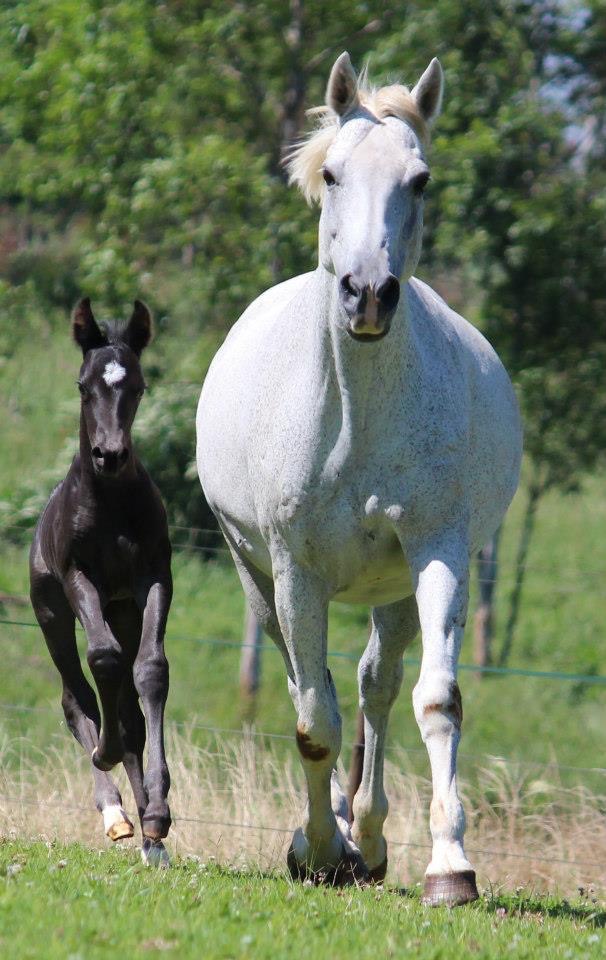
Case Study 2: Chipowa, The Lead Mare
Chipowa, one of my first foals, was known for her dominant and protective behavior within her herd. She ruled with an “iron hoof,” always alert and reactive, traits that made her an excellent lead mare but also one of the spookiest and most challenging horses to manage.
Chipowa’s heightened vigilance was essential in her role as protector, but it also made her particularly reactive and difficult under saddle. Her daughter, inheriting both her mother’s dominant traits and learned behaviors, followed in her footsteps, showcasing similar leadership and vigilance.
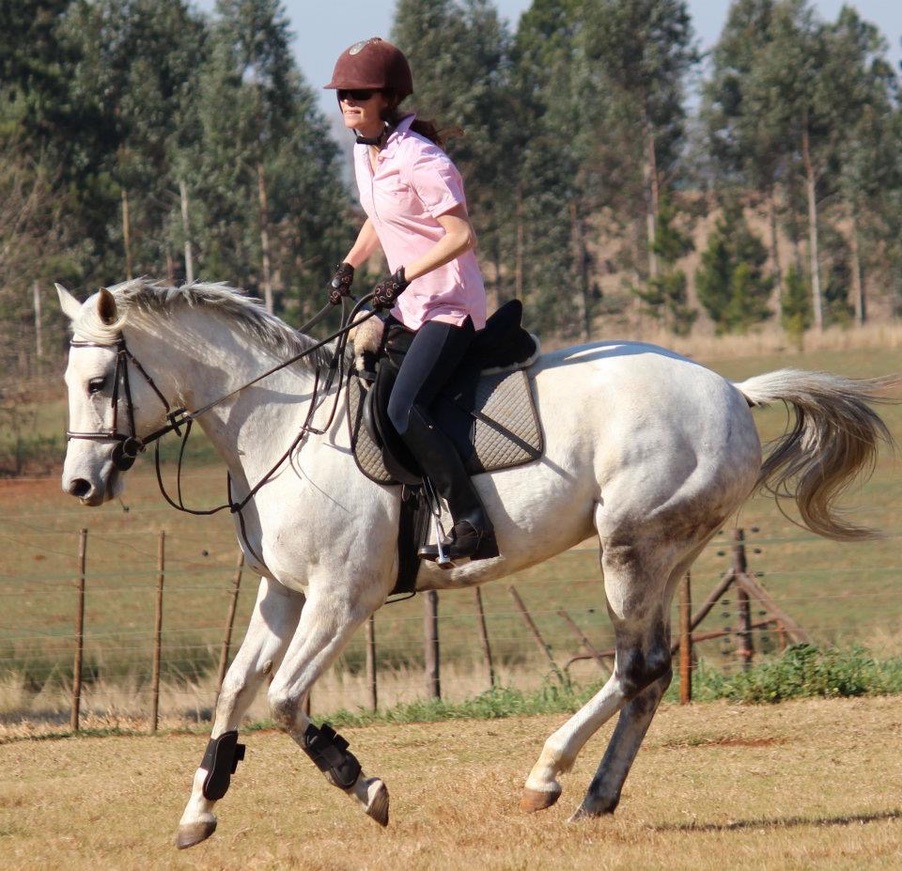
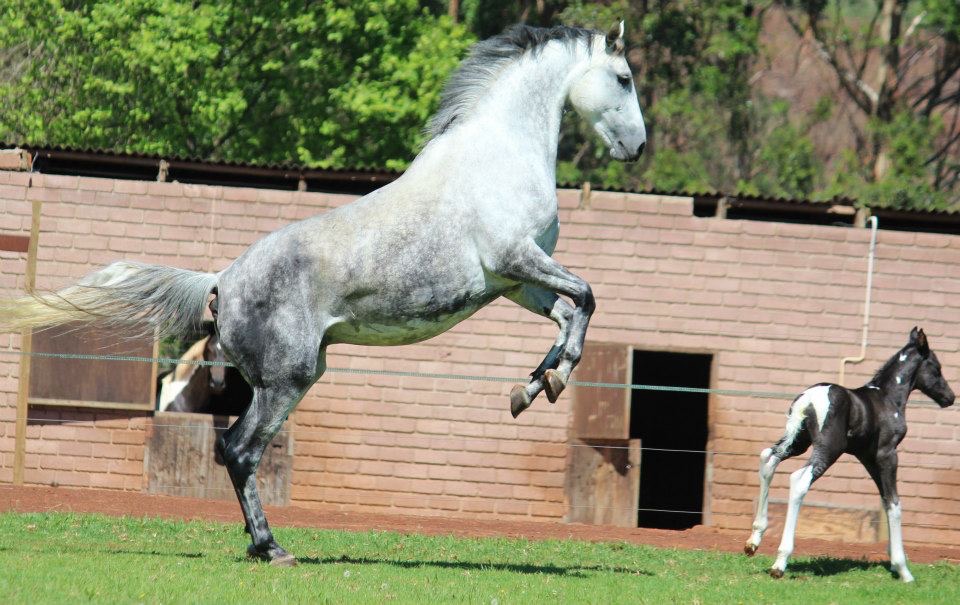
Adjustments and Outcomes: Understanding Chipowa’s role in the herd and her natural inclination to protect allowed us to tailor our approach to her training and management. Recognizing her need for security and control, we adjusted our handling techniques to provide her with reassurance and a sense of command over her environment. This approach not only eased her spookiness but also allowed her to channel her protective instincts more constructively.
Both cases illustrate the profound impact of tailored management strategies that consider the individual needs and natural behaviors of mares. By moving beyond stereotypes and implementing informed adjustments, handlers can unlock the full potential of their mares, turning challenges into triumphs. These examples underscore the truth of the old horseman’s saying: with mares, it’s all about negotiation and trust. Once you gain their trust and understand their needs, mares will indeed do anything for you.
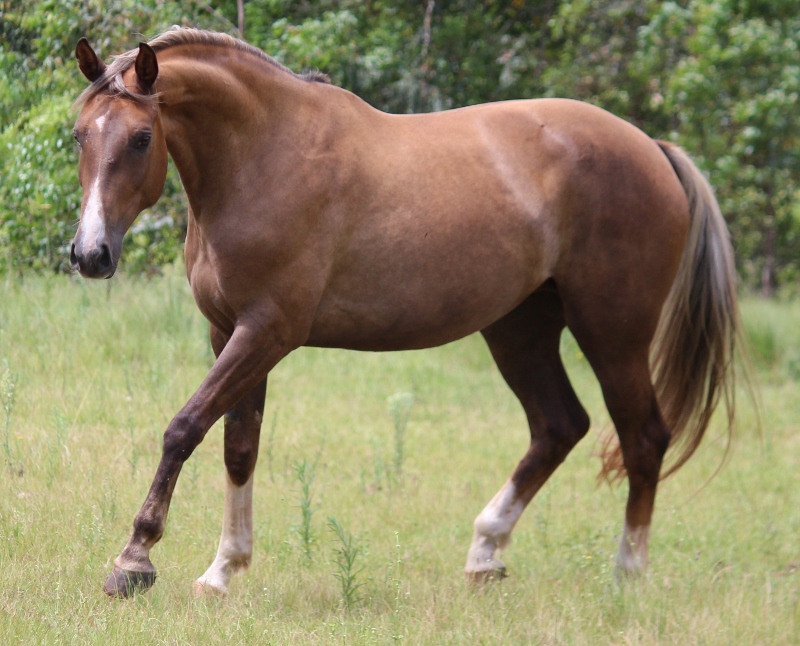
Expert Insights: Managing and Understanding Mares
Gaining insights from veterinarians, behaviorists, and experienced breeders can significantly enhance our approach to managing and understanding mares. Their combined knowledge offers a depth of perspective on the best practices for everyday care, training, and overall management that respects the unique nature of mares.
Veterinarian Insights
- Health and Hormones: Veterinarians emphasize the importance of regular health checks to monitor and manage the physical and hormonal health of mares. Dr. Emily Olson, an equine veterinarian, recommends routine veterinary care that includes reproductive health assessments to address any issues related to hormonal imbalances. “Managing a mare’s reproductive health goes beyond fertility; it’s about ensuring their overall well-being, which directly affects their behavior,” she explains.
- Nutrition: Proper nutrition plays a critical role in a mare’s health and behavior. Veterinarians advise a balanced diet tailored to the mare’s life stage, work level, and reproductive status. Special attention should be given during pregnancy and lactation, as nutritional needs significantly increase.
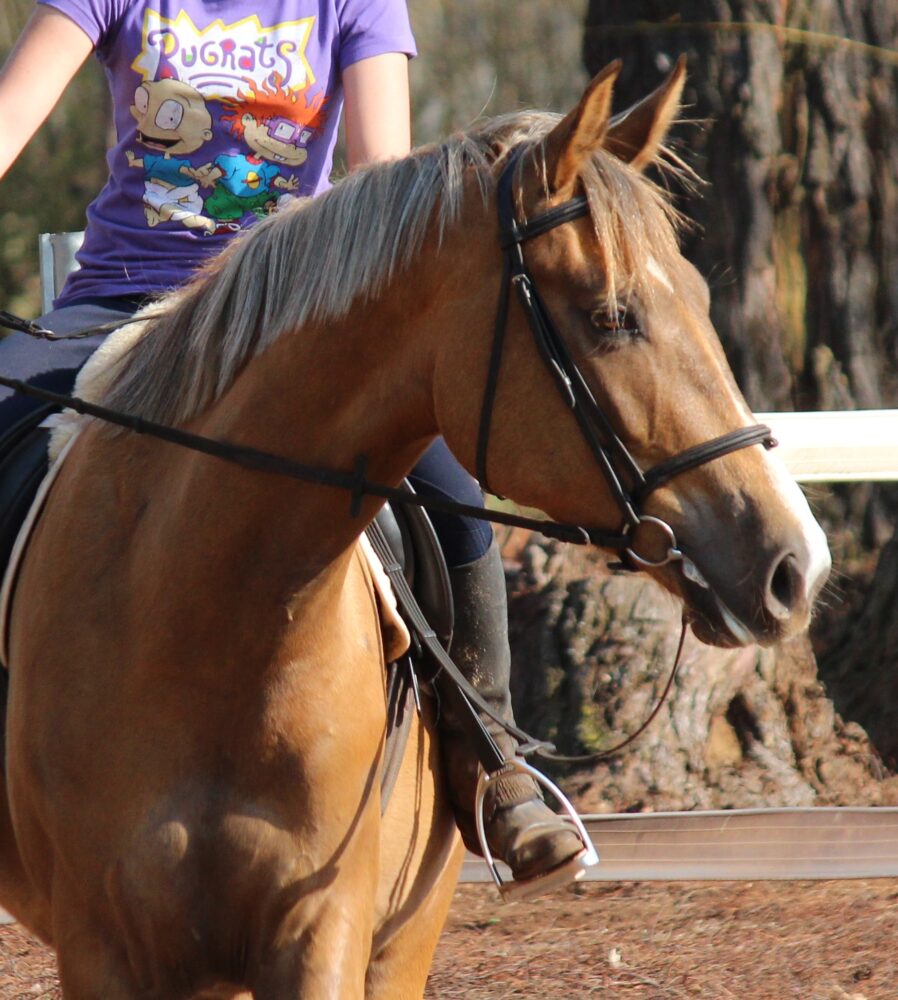
Behaviorist Insights
- Understanding Behavioral Cues: Equine behaviorists stress the importance of understanding and responding to behavioral cues from mares. Recognizing signs of discomfort, stress, or anxiety early can prevent behavioral issues from developing. Behaviorist John Roberts suggests, “Spend time observing your mare’s interactions with other horses and humans to understand her communication style and preferences. This can guide how you handle and train her.”
- Training Techniques: Positive reinforcement and consistent training routines are highly effective with mares. Behaviorists recommend using rewards such as treats or praise to reinforce good behavior, as mares often respond well to incentives. Consistency in commands and handling helps build trust and a sense of security.
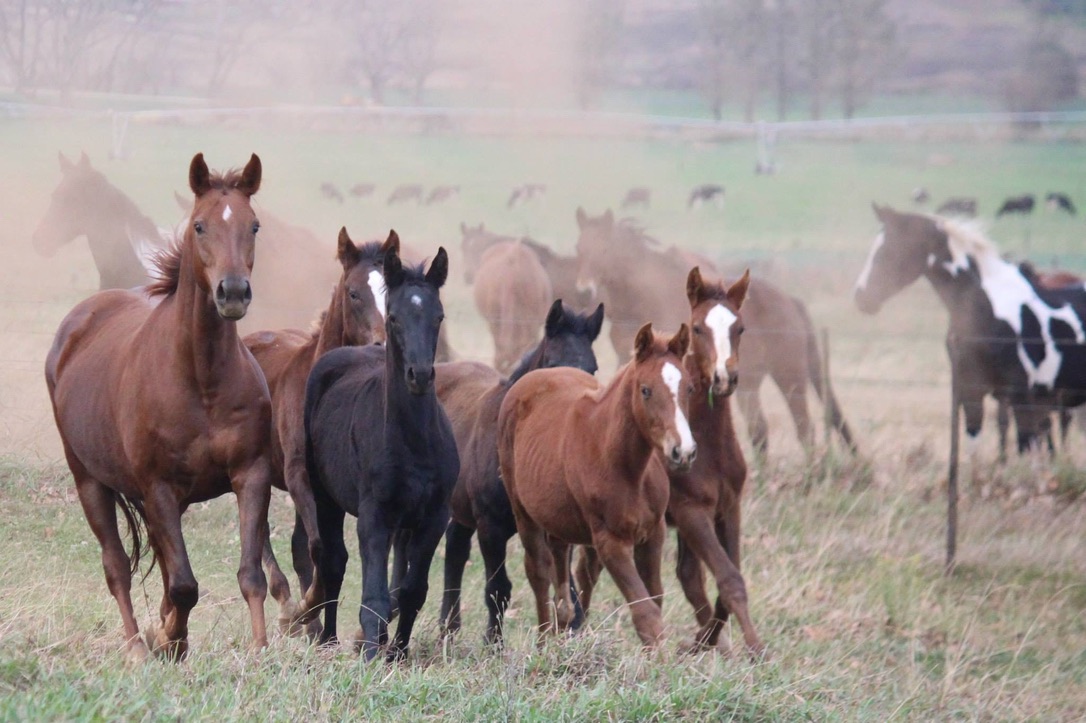
Breeder Insights
- Socialization: Equine Bonds: Exploring the Social Dynamics Among Horses: Experienced breeders highlight the importance of proper socialization for mares. Socializing mares with various environments and situations from a young age can reduce anxiety and improve adaptability. Breeder Linda Hartley advises, “Introduce young mares to different settings, animals, and people to foster a well-rounded temperament that adjusts well to changes.”
- Breeding and Management: Understanding the reproductive cycle of mares and adjusting management practices accordingly can lead to better outcomes in both breeding and daily handling. “Tailor your training and workload to your mare’s cycle, recognizing when she might need more downtime or a lighter workload,” suggests Hartley.
General Best Practices
- Regular Routine: Mares thrive on routine. Establishing a consistent daily schedule for feeding, training, and interacting can help maintain a calm and stable environment.
- Respect and Patience: Building a relationship with a mare is about respect and patience. Acknowledging her intelligence and individuality will foster a strong bond and mutual trust.
- Environment: Ensure that mares have a safe, comfortable environment. This includes adequate shelter, space to exercise, and regular opportunities to interact with other horses in a controlled and safe manner.
By integrating these expert insights into everyday practices, handlers and caretakers can enhance their understanding of mares, leading to better health, improved behavior, and more effective training.
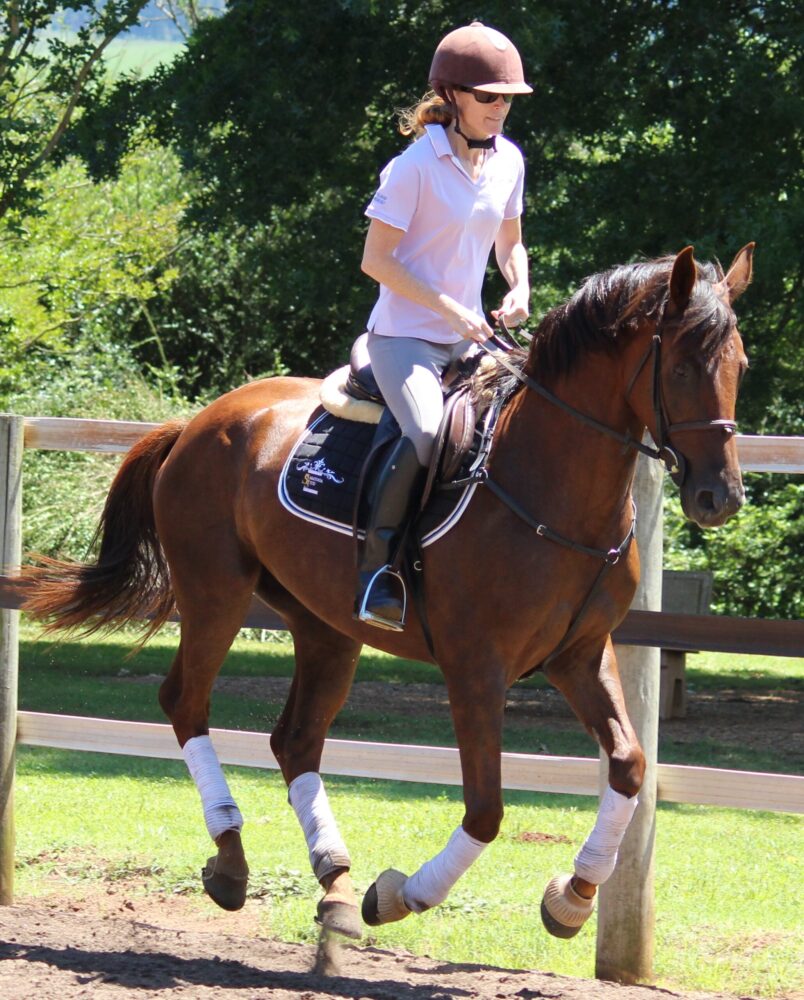
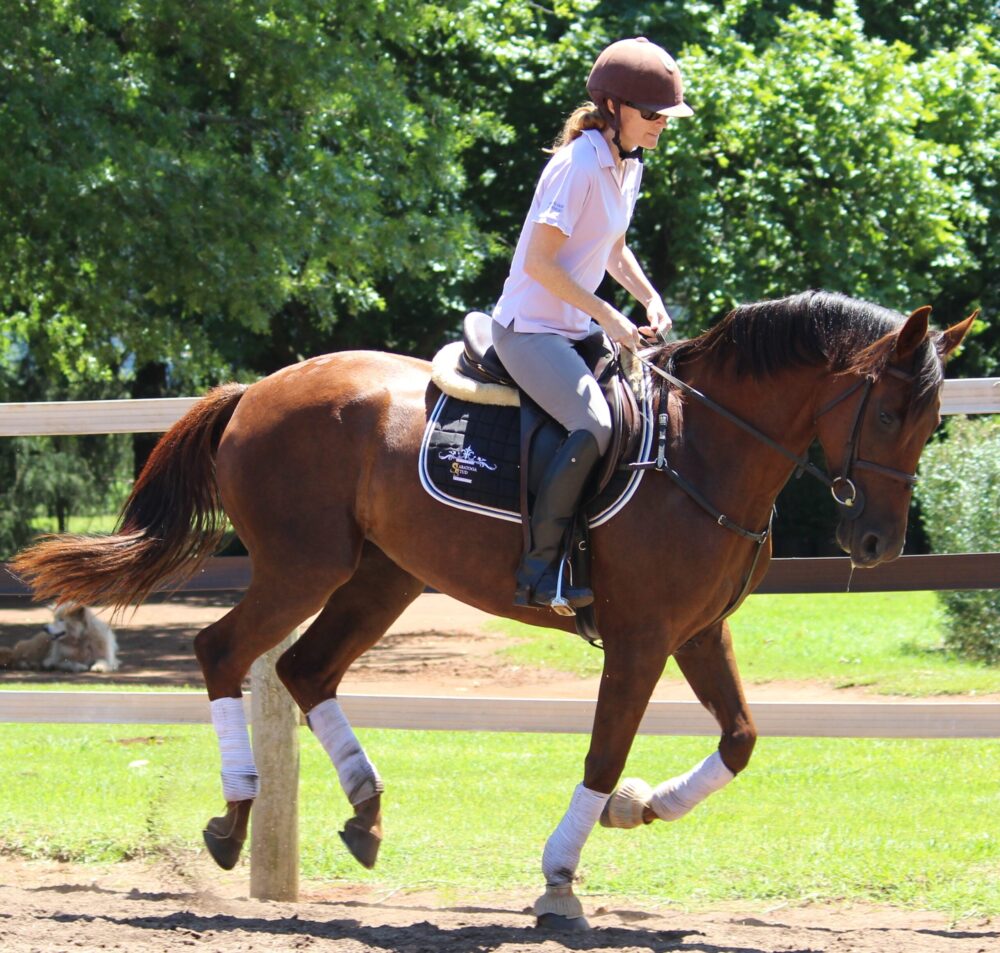
Conclusion
Throughout this exploration of mare behavior, we’ve delved into various aspects that illuminate the unique and often misunderstood nature of these special animals. From debunking common stereotypes to understanding the complex dynamics of their psychological and social behaviors, it’s clear that mares are not merely the sum of simplistic labels. By considering the influences of their health, hormonal changes, and environmental factors, we gain a fuller picture of what drives mare behavior.
We’ve seen through case studies how nuanced understanding and specific adjustments in handling can transform challenges into success stories. Insights from veterinarians, behaviorists, and experienced breeders have provided us with practical tips and best practices for daily care and training that respect and leverage the distinctive traits of mares.
The stereotypes that have long defined mares do little justice to their intelligence, sensitivity, and capability. By embracing a deeper understanding of their needs and behaviors, you can enhance not only the welfare of these animals but also the richness of your relationship with them.
The journey to understanding mares is rewarding, filled with opportunities for growth and discovery. Whether you’re a seasoned equestrian or new to the world of horses, every interaction with a mare can be a learning experience, fostering a deeper appreciation for these incredible companions. Let’s continue to challenge outdated views and celebrate the unique qualities that mares bring to our lives and stables.
Call to Action
Now that we’ve shared insights and stories about the distinctive world of mares, we’d love to hear from you! Whether you’ve faced challenges, celebrated triumphs, or simply enjoyed the unique personality of a mare, your experiences are invaluable in broadening our community’s understanding.
Share Your Mare Stories:
- Do you have a mare who has broken the mold of common stereotypes?
- Have you implemented any specific management or training techniques that have made a significant difference?
- What have you learned from your time spent with these remarkable animals?
Please share your stories in the comments below or on our social media platforms. Your insights not only enrich our discussions but also help others in their journeys with mares.
Further Learning and Resources: For those eager to continue learning about equine behavior, check out these resources:
Books
- “Understanding the Ancient Secrets of the Horse’s Mind” by Robert M. Miller – This book provides insights into equine psychology and behavior, offering practical advice on training and handling horses.
- “The Nature of Horses: Their Evolution, Intelligence and Behaviour” by Stephen Budiansky – A comprehensive exploration of horse behavior, anatomy, and evolution, perfect for those looking to deepen their scientific understanding.
Online Courses and Webinars
- “Equine Behavior and Welfare” by Coursera – Offered by the University of Edinburgh, this course provides academic and practical insights into equine behavior, welfare, and management.
- “Understanding Equine Behavior” Webinar Series – These webinars, often hosted by equine universities or equestrian federations, feature experts discussing topics from basic horse behavior to advanced management techniques.
Websites
- The Horse: Your Guide to Equine Health Care (thehorse.com) – A leading resource on horse care, health, and management, offering articles, studies, and webinars.
- Equine Behaviorist Network (equinebehavioristnetwork.com) – A platform where you can find certified equine behaviorists and read articles on behavior management.
YouTube Channels
- Warwick Schiller Performance Horsemanship – Warwick provides a series of videos focusing on training and understanding horse behavior through a gentle and responsive approach.
- Elisa Wallace Eventing – Elisa is an event rider and trainer who often includes insights into horse training, focusing on mares and rescue horses.
Apps
- Horse Side Vet Guide – This mobile app is a useful tool for horse owners, providing helpful information on horse health and behavior issues, directly from veterinarians.
Workshops and Clinics
- Local Equestrian Centers – Many equestrian centers offer workshops on horse behavior and training. Encourage readers to check with local centers for upcoming events.
- Natural Horsemanship Clinics – Clinics led by practitioners of natural horsemanship often provide deep dives into understanding horse psychology and effective communication.
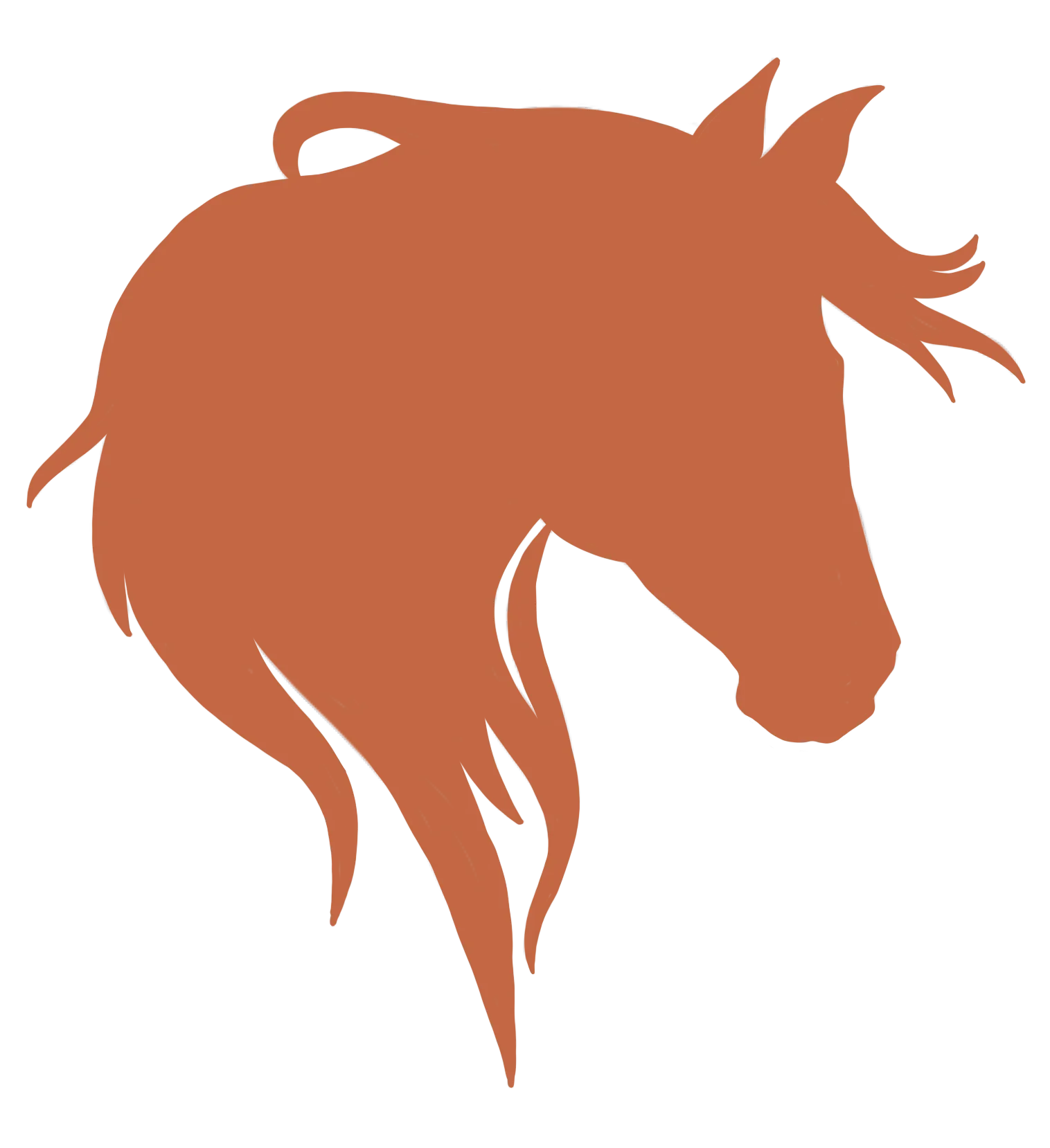
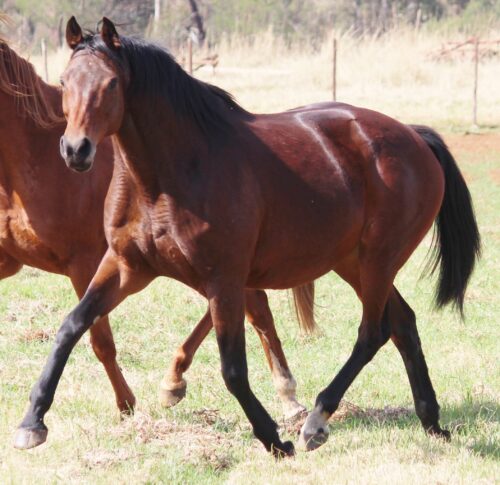
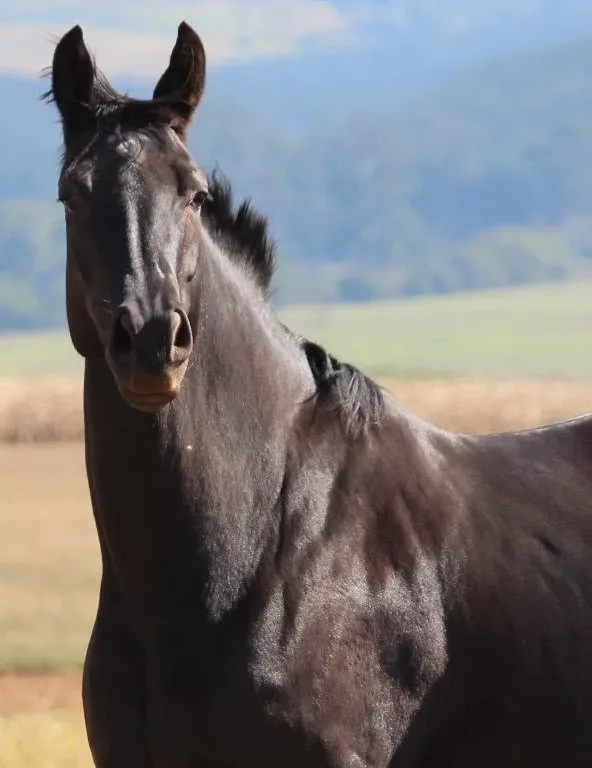
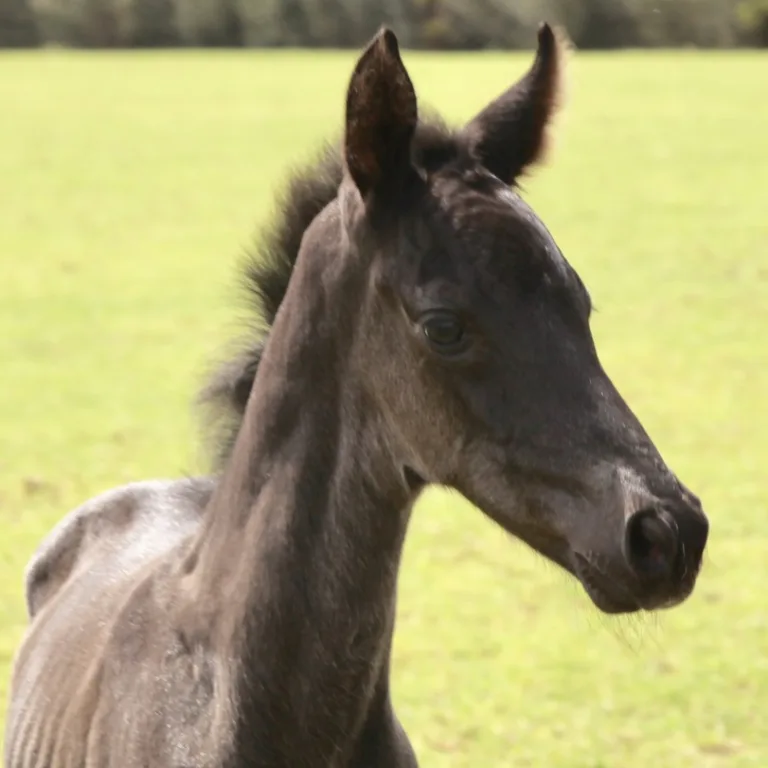
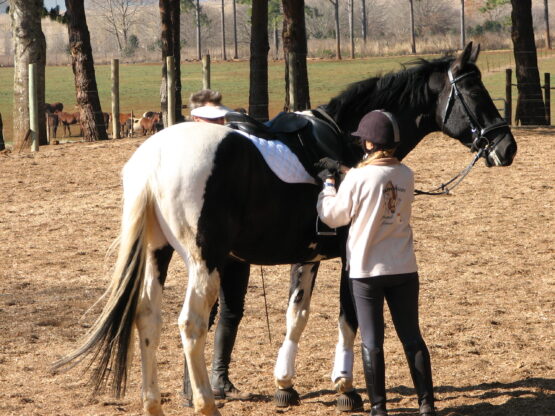
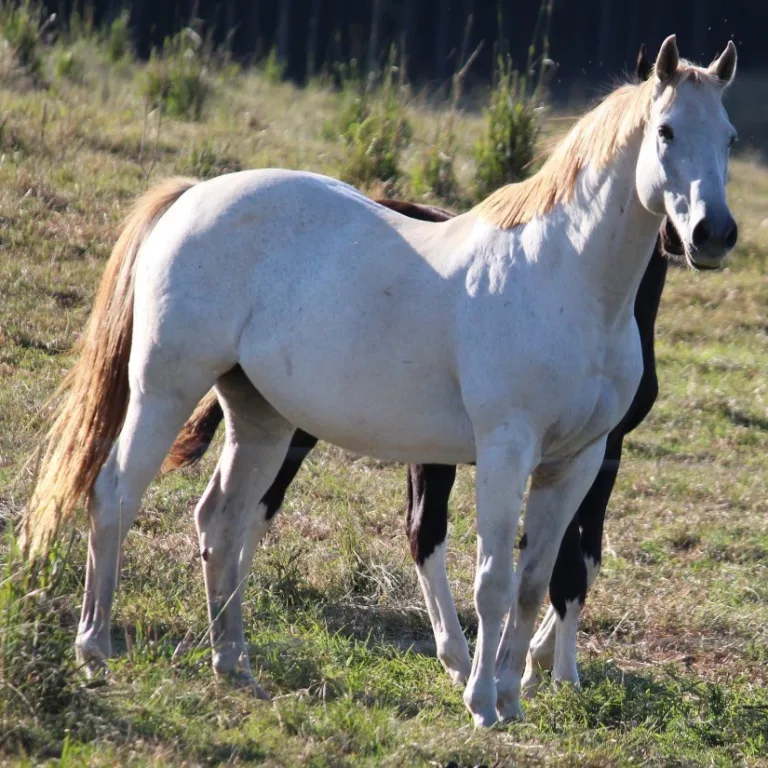
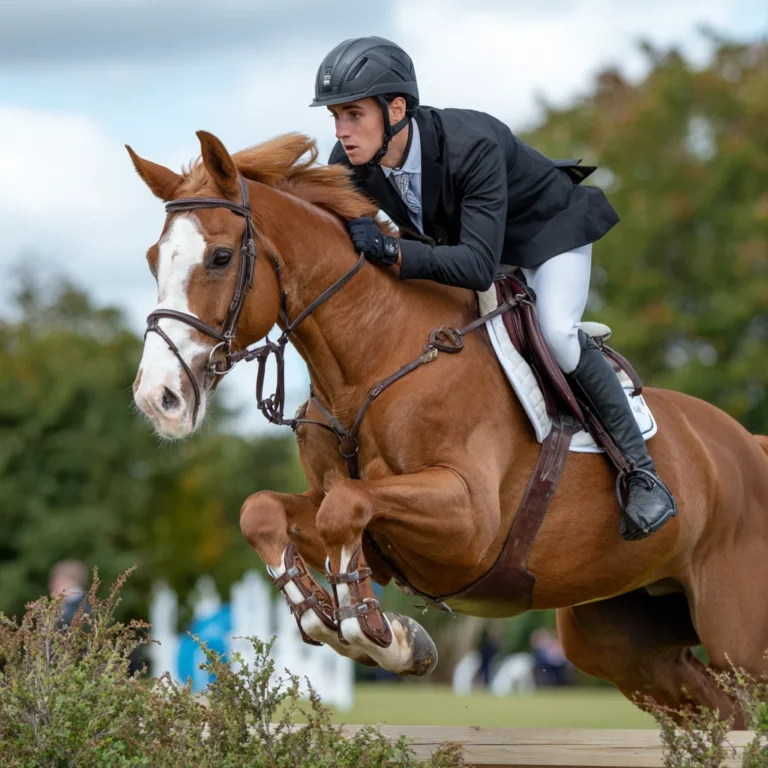
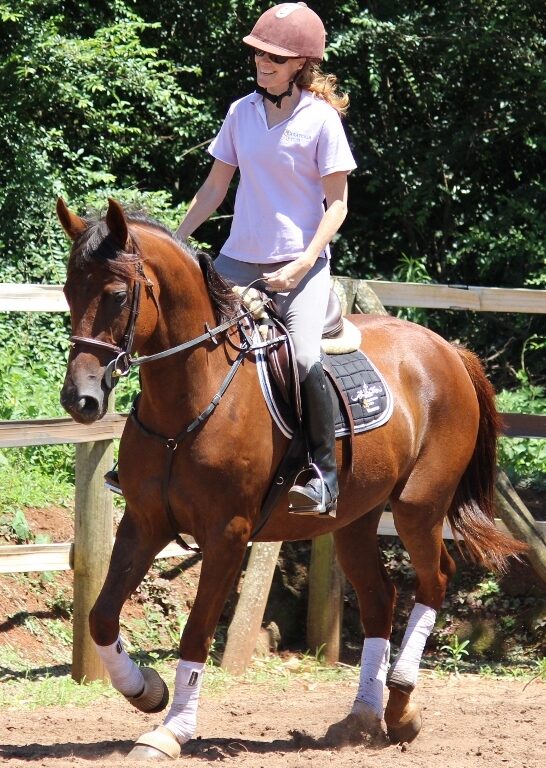
Leave a Reply